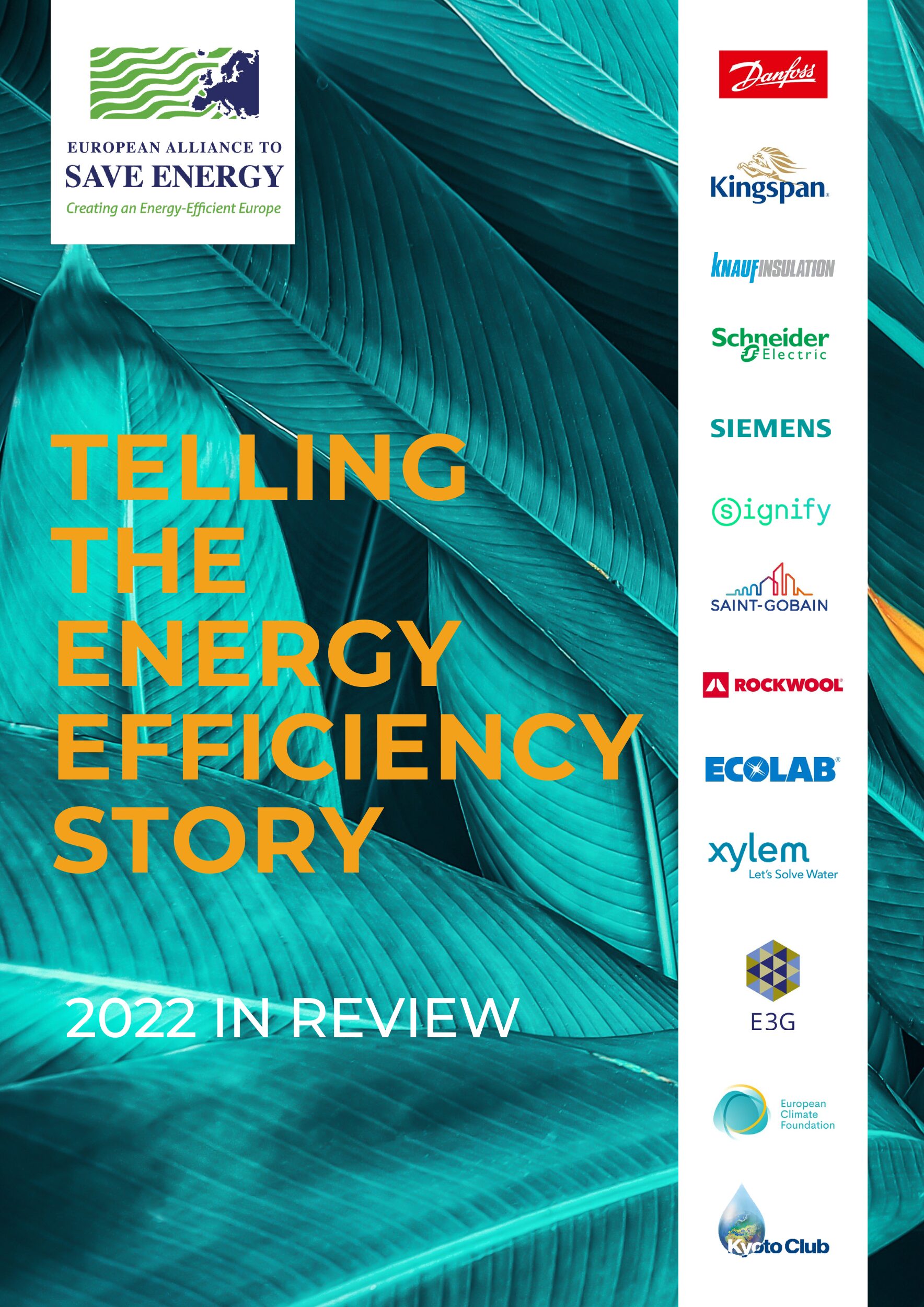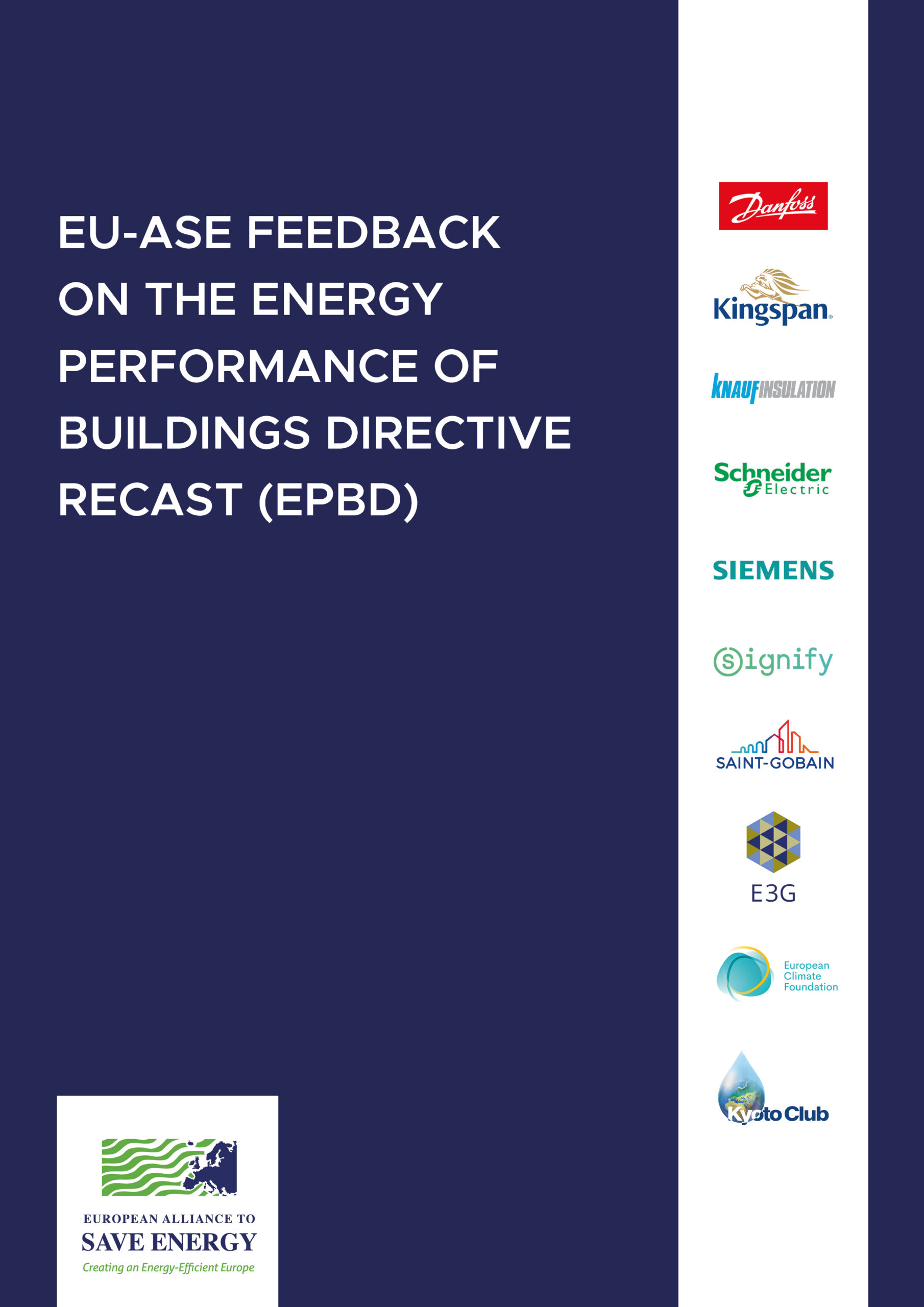Brussels, 25 October 2022 – Today, the Council of the European Union adopted its general approach (GA) on the recast of the Energy Performance of Buildings Directive (EPBD) as part of the ‘Fit for 55’ legislative package to put the Union on track with the 2030 and 2050 climate neutrality targets.
Leading businesses commenting on the general approach adopted by the Council underline that achieving an energy efficient and sustainable building stock is critical for the EU to tackle today’s energy and climate crisis, worsened by the Russian invasion of Ukraine. The building sector is the first EU energy consumer, thus the revision of the EPBD is a key opportunity to accelerate the very low annual building renovation rates, as only 1% of EU buildings undergo energy renovations each year.
Despite the huge role building renovations have in the EU energy transition, the European Alliance to Save Energy underlines that the Council’s vision on the revision of the EPBD is not consistent with the 2030 target for the Union to reduce at least 55% of GHG emissions, nor effective in achieving the REPowerEU goal to tackle today’s dependency on imported fossil fuels. According to the Renovation Wave strategy, the EU must at least double the current annual building renovation rates and foster deep energy retrofits, aiming at renovating 35 million building units by 2030. This target cannot be achieved with the Council’s envisioned system for Minimum Energy Performance Standards (MEPS).
EU-ASE believes that decoupling MEPS from energy classes is not a reliable mechanism to ensure that buildings become more performing overtime, while EPCs and energy classes are already mandatory in all Member States. On the contrary, EPCs should be harmonised and reinforced. In addition, EU-ASE regrets that the Council position does not support an EU-MEPS system, preferring national renovation trajectories which should aim to deliver the ‘Zero Emission Building’ (ZEB) objective, but without clear compliance mechanisms after 2034 for private non-residential buildings and after 2033 for residential buildings.
Finally, it is matter of concern that Member States may choose not to apply MEPS in single family houses in favour of an approach based on renovation trigger points based on a sell or a rental contract, which would unacceptably keep millions of EU citizens living in inefficient buildings, thus worsening energy poverty.
Monica Frassoni, President of the Alliance, said: “While recognising the efforts made by the Presidency of the Council to maintain the ‘Zero Emission Buildings’ vision by 2050, it is evident that without a clear strategy to trigger scalable energy renovations in buildings, thousands of Europeans will keep on living in energy poverty conditions. An EPBD that is ‘fit for 55%’ means ambitious minimum energy performance standards that cover the renovation of all EU buildings so that they become Zero Emissions by 2050 at the latest.”
While the Council adopted its General Approach, the European Parliament is still negotiating compromise amendments on the Commission’s proposal which should be voted in the ITRE committee on November 29. Inter-institutional negotiations should therefore start during the first quarter of 2023.
Finally, EU-ASE welcomes the declaration proposal formulated by France and supported by Germany, Luxembourg, Belgium, the Netherlands and Ireland to push for greater ambition regarding minimum energy performance standards during inter-institutional negotiations with the Parliament.
You can find here the position of EU-ASE on the revision of the Energy Performance of Buildings Directive.
Read the PDF version of our press release here.
Media contact:
Antoan Montignier
+32 499 84 97 28
antoan.montignier@euase.eu
About us
The European Alliance to Save Energy (EU-ASE) is a cross-sectoral, business-led organisation that ensures that the voice of energy efficiency is heard across Europe. EU-ASE members have operations across the 27 Member States of the European Union, employ over 340.000 people in Europe and have an aggregated annual turnover of €115 billion.






